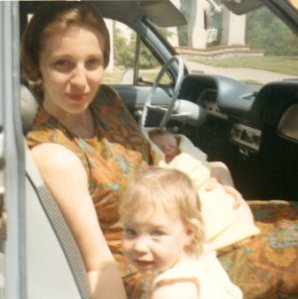Yes, another sighting of R. S. Thomas on a bag of Tyrrells crisps. Perhaps he’ll gain more readers?
Tyrrells more nibblers? I know I’ll be on the lookout for Tyrrells crisps – probably not the sweet chili and red pepper ones – when I’m in England and Wales in May.
But it’s what’s behind the photo of R.S. that interests me today: an old car.
When I was a kid, many people referred to their car as “the machine.”
The Machine, for Thomas, is a synechdoche for everything that separates us from our natural environment, everything that rips us out of intimate contact with animate and inanimate nature.
…………………… . . . Consumers
of distance at vast cost
what do they know of the green
twig . . . ?
Before you growl about “synechdoche,” let me note that it involves using a part of something to stand for the whole. “Fifty sail” for “fifty ships.” “White House” to indicate the President and his (her) administration. “The Machine” for our mechanized world and its insistence that it is speeding us toward nirvana.
Key opposites in Thomas’s worldview are the farmer in the field and the driver in the car:
……. . . . the motorist goes by insolently
wagging his speedometer’s finger.
My hearty thanks to susanriverside for reminding me of those lines, and then, when I couldn’t find them, identifying the poem; see her comment on my February 2nd post.
Back to Thomas’s key opposites: the natural world and the machine. “[W]hat else but the land,” Thomas asks, “Can make men eternally new?”
In “Once,” the first man and woman, “Confederates of the natural day, . . went forth to meet the Machine.” The Machine was in their future from the moment that Homo sapiens tasted the fruit of the tree of the knowledge of good and evil (Genesis 3:1-7).
In “This One,” people of the Machine-world gorge
………………………… . . . themselves
On a dream; kindling
A new truth, withering by it.
While “this poor farmer”
………. . . . Ploughing under the tall boughs
Of the tree of the knowledge of
Good and evil, watching its fruit
Ripen, abstaining from it.
Thomas was part of the Romantic Movement that urged abstinence from the fruit of industrialism’s tree of the knowledge of good and evil.
Romantics shuddered at the sight of Blake’s “dark Satanic Mills,” preferring Wordsworth’s “crowd, / A host, of golden daffodils.”
The preference for daffodils seems to be losing:
……………….. . . . The nucleus
In the atom awaits
Our bidding. Come forth,
We cry, and the dust spreads
Its carpet. Over the creeds
And masterpieces our wheels go.
But the Machine, like Shelley’s Ozymandias, may be boasting too soon: “Look on my works, ye Mighty, and despair!”
Thomas, in one of his poems, has God ask humans:
…………………… . . . Where will [the Machine]
Take you from the invisible
Viruses, the personnel
Of the darkness that do my will?
No matter how many pharmaceuticals spew from machines – “Production, / Production, the wheels // Whistled” – it still takes the six days of creation to get rid of the common cold.
And viruses gather at their resorts to discuss papers that will keep them ahead of the chemists.
Poems of R. S. Thomas quoted in this post:
“Consumers of distance” – “This One,” Experimenting with an Amen, 58.
“the motorist goes by insolently” – “Come Down,” Mass for Hard Times, 39.
“what else but the land” – “The Peasant,” Uncollected Poems, 33.
“Confederates of the natural day” – “Once,” H’m, 1.
“themselves on a dream” – “This One,” H’m, 3 – note that RST sometimes uses the same title for different poems.
“The nucleus in the atom” – “No Answer,” H’m, 7.
“I listened to you too long” – “Soliloquy,” H’m, 30.
“Production, Production” – “Postscript,” H’m, 22.


